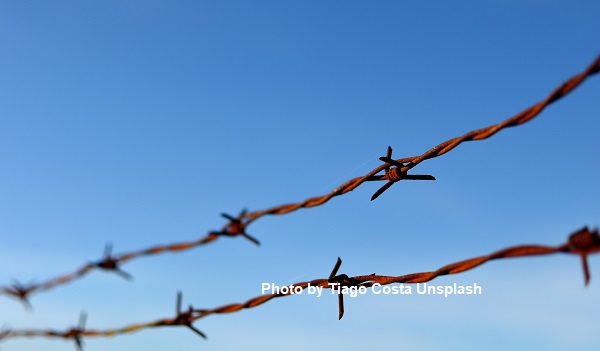Four people are confirmed to have died of hypothermia and exhaustion along the Poland-Belarus border, with another seven hospitalised elsewhere in the Polish border region. NGOs say the tragic deaths were predictable and preventable given aid workers and journalists have been denied access to the region while Polish officials attempt pushbacks. The UN Refugee Agency (UNHCR) and the International Organization for Migration (IOM) have asked for access to the people still stuck at the border, while Poland has responded by deploying more troops.
On 19 September, Polish border police announced the discovery of three male bodies, thought to be those of Iraqi nationals, along the border with Belarus. A body of an Iraqi woman was found on the Belarussian side of the border. The people died of exposure and exhaustion, with temperatures in the forest dropping to a few degrees above freezing at night. Belarussian state media claimed the woman had been illegally forced back to Belarus by Poland or that her corpse had been dragged from Poland to Belarus. The deaths took place in the border zone currently designated a “state of emergency” and therefore not accessible to journalists or NGOs. Reportedly, doctors and UNHCR staff have also been refused entry, though the Red Cross was permitted in at least one case. Elsewhere along the border, border police also discovered eight exhausted migrants stuck in marshy terrain, seven of whom had to be hospitalised. On 18 September, Alarm Phone reported a family of seven stranded for over a week at the border. The NGO hotline informed the authorities, as well as the Red Cross and UNHCR Poland, saying the people had run out of food and water and were exposed to the harsh climate.
The recent deaths took place against the backdrop of a diplomatic row between Latvia, Lithuania and Poland and the neighbouring Belarussian regime. The three EU Member States accuse Belarus of orchestrating irregular border crossings along the bloc’s eastern border in retaliation against western sanctions. According to Polish authorities, more than 8,000 migrants and asylum seekers have made attempts to cross the Belarussian border this year, including 3,800 since 1 September. Poland, Lithuania and Latvia have each declared a state of emergency, introduced legal changes restricting the right to seek asylum, and reinforced border guards, barbed wire fences, and deployed soldiers. A group of Afghan refugees has been stuck in the border area between Poland and Belarus for nearly two months without any opportunity to request international protection. Polish Interior Minister Mariusz Kaminiski has justified the hardline approach, saying: “We will not allow Poland to become another route for mass smuggling of illegal migrants into the European Union.”
Rights groups and humanitarian agencies have repeatedly expressed alarm for the people trapped at the border and insisted that their basic rights should not be compromised as a result of the EU-Belarus spat. Piotr Bystrianin, head of local NGO the Ocalenie Foundation, said: “We warned that if the authorities and border guards did not stop breaking the law, taking people to the border and forcing them to cross it repeatedly, if they did not start accepting applications for international protection, a tragedy would result”. UNHCR and IOM issued a joint statement on the deaths, saying they had made clear the dangers of pushbacks and of people “stranded for weeks, unable to access any form of assistance, asylum or basic services. Many were left in dire situations, exposed to the elements, suffering from hypothermia.” The two UN agencies have called for an investigation into the deaths and asked for “immediate access” to other refugees and migrants “in order to provide lifesaving medical help, food, water and shelter, especially in light of the approaching winter.”The Polish response has been one of securitising the border, with the construction of a 2.5m barbed wire fence and the deployment of 900 soldiers in August to assist border guards. On 21 September, the Polish government announced that a further 500 soldiers would be sent to the border. These soldiers have been accused of illegally pushing back migrants back across the border from Poland to Belarus without providing any opportunity for people to apply for asylum. On 24 September, the BBC released interview footage with people in the forest who gave first-hand accounts of being returned from the EU to Belarus on multiple occasions. One day before the deaths were discovered, the Polish border guard boasted on Twitter about preventing 324 “illegal” attempts to cross the border.
For further information:
- ECRE, Poland: UNHCR Regrets Restrictions on the Right to Claim Asylum, September 2021
- ECRE, Poland: Rule of Lawlessness Continues as State of Emergency is Extended, September 2021
Photo by Tiago Costa on Unsplash
This article appeared in the ECRE Weekly Bulletin. You can subscribe to the Weekly Bulletin here.

